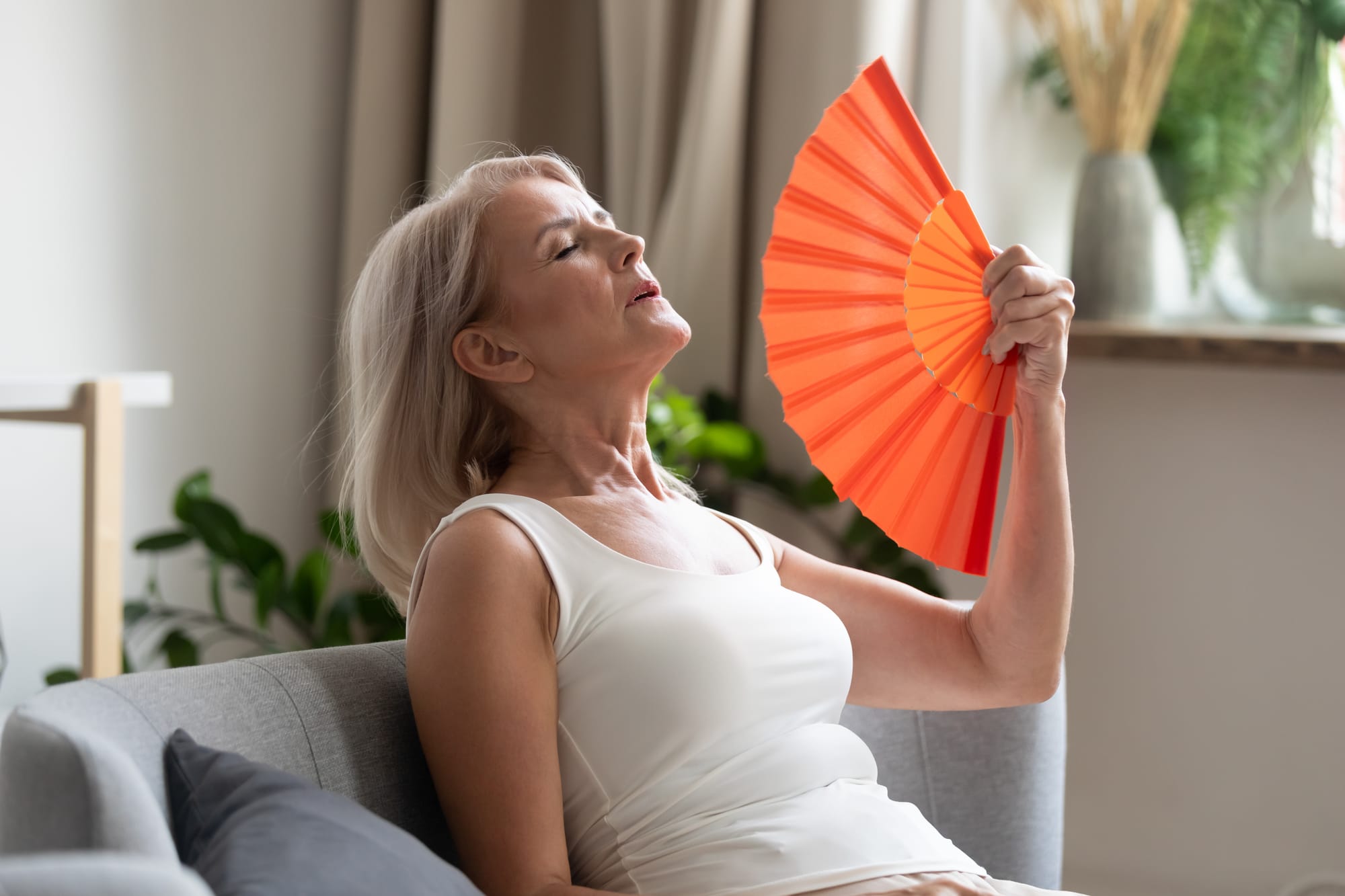Women And Menopause, Part 2

Hopefully this article will shed some light on the physiology, medical and mental changes for women.
We highlighted male menopause previously and I hope it shed some light for women to see what men go through.
Part 3 will be combining the effects of "Couple Menopause". (New term, but it fits)
Definition-the time in a woman's life when her periods stop. It is a natural, normal body change that occurs between the ages of 45-55 which concludes her ability to get pregnant. The average age is 51, but it also depends on the age that you started your menses, aka periods.
Women are born with all of their eggs stored in their ovaries. The ovaries make estrogen and progesterone which control their periods and the release of eggs, ovulation. Menopause occurs primarily when the ovaries run out of eggs.
There are women who have menopause earlier, but there are also women who have been known to get pregnant in their 50s, much to their surprise. I always advised women if they were considering giving up birth control, wait until there are no periods for a year, even if another period occurs at 11 months. If you are that person who has a period on the 11th month, talk to your doctor to make sure everything else is ok.
A woman who stops her periods before 40 is diagnosed with premature menopause. Approximately 1% of women experience early cessation of menses/periods. It can be very distressing for a woman who possibly waited until that decade to start a family. Other cases of early menopause might be chemotherapy, hysterectomy with the ovaries still intact or transient cessation of periods due to stress.
What happens during menopause? The most common symptom, hot flashes. The dreaded first symptom, usually, which gives women much distress and also gives menopause a "bad name". We have almost all had them, sitting upright in the middle of the night, ripping your clothes off. and dripping wet. Your partner lying next to you asks if are you ok, you are burning up. Remember the difference, a fever sticks around, hot flashes are transient.
Other wonderful symptoms include irregular or missed periods prior to complete cessation of periods. vaginal dryness, sore breasts, frequent urination, dry skin, mood swings, weight gain, hair loss, decreased sex drive, bloating and trouble sleeping. Don't forget crankiness as your partner will certainly attest to. The symptoms usually last about 3 years until things level out.
There are actually three phases, perimenopausal, possibly 4 years prior, menopause, and post menopause, the rest of your life without periods, hoorah!
Are their blood tests to help one diagnosis or menopause? Yes, visit your Health Care Provider and do a few tests to direct you to the diagnosis. They are an FSH, Estradiol level, and a thyroid test. It is a good place to start, but during the perimenopause there may only be slight elevations or none at all. As it progresses the FSH climbs and the Estradiol wanes. Plus, those dreaded hot flashes are a tip off. Going to your HCP is important so he/she knows what you are going through.
After you go through this experience, you are rewarded with an increased risk of certain medical conditions such as osteoporosis, heart and vessel disease, urinary incontinence, some shrinkage of the vaginal walls, plus weight gain/bloating.
Truthfully though, there is an upside, no more periods, no more birth control (after one year) and a freedom that you have not experience before.
There are treatments, including estrogen therapy of which there are multiple forms, The lowest dose possible can be one choice until the worst of the symptoms abate. Long term use of hormone therapy may have risk of heart disease and breast cancer risks. There are also other hormone therapies and the risk factors should be discussed with your HCP.
Some antidepressants, SSRIs, may ease some of the hot flashes and possibly help the mood swings.
Gabapentin, used for seizures has been shown to help with hot flashes along with Clonidine. There is a new medicine called Veozah which is hormone free and helps with regulation of the body temperature.
As far as an overactive bladder, Kegals help plus a drug named Oxubutynin. There may be some effect on cognition in older women, so again, talk to your HCP. One idea re: Kegels, each time your go to the bathroom after you have voided, do 10. Easy way to strengthen your bladder floor.
A bone density test is important to establish the status of your bones and is generally repeated every two years. A loss of bone strength can lead to fractures, and again, there are medicines for that, Fosamax, etc.
Remember, menopause is normal and most women are grateful when they do not need to worry about periods and birth control. The symptoms are real though ,and can be very distressing. Rather than waiting until the symptoms occur, talk to your HCP around age 40. Better to be informed.
Establish good eating habits, protein, fruits, vegetables, dairy, minimize your alcohol intake, and exercise 150 minutes per week. Walking is great as it strengthens your pelvic floor muscles which helps with bladder support. Up your calcium intake to 2-3 servings per day and get some sunshine daily. Keep moving and don't forget your annual pap smears and mammograms.
The worst thing you can do for your your life is to give into menopause, thinking old and slowing down.
This can be the richest part of your life. Socialize, read, learn a new language, volunteer, find a walking buddy and really explore. How about aiming for a 5K walk, 10K, half marathon, OR walking tour of Europe? Think big!
I hope this helps a little. (Men, please read this and appreciate what she is going through)
Watch for the next and last segment, MALE AND FEMALE MENOPAUSE COMBINED.